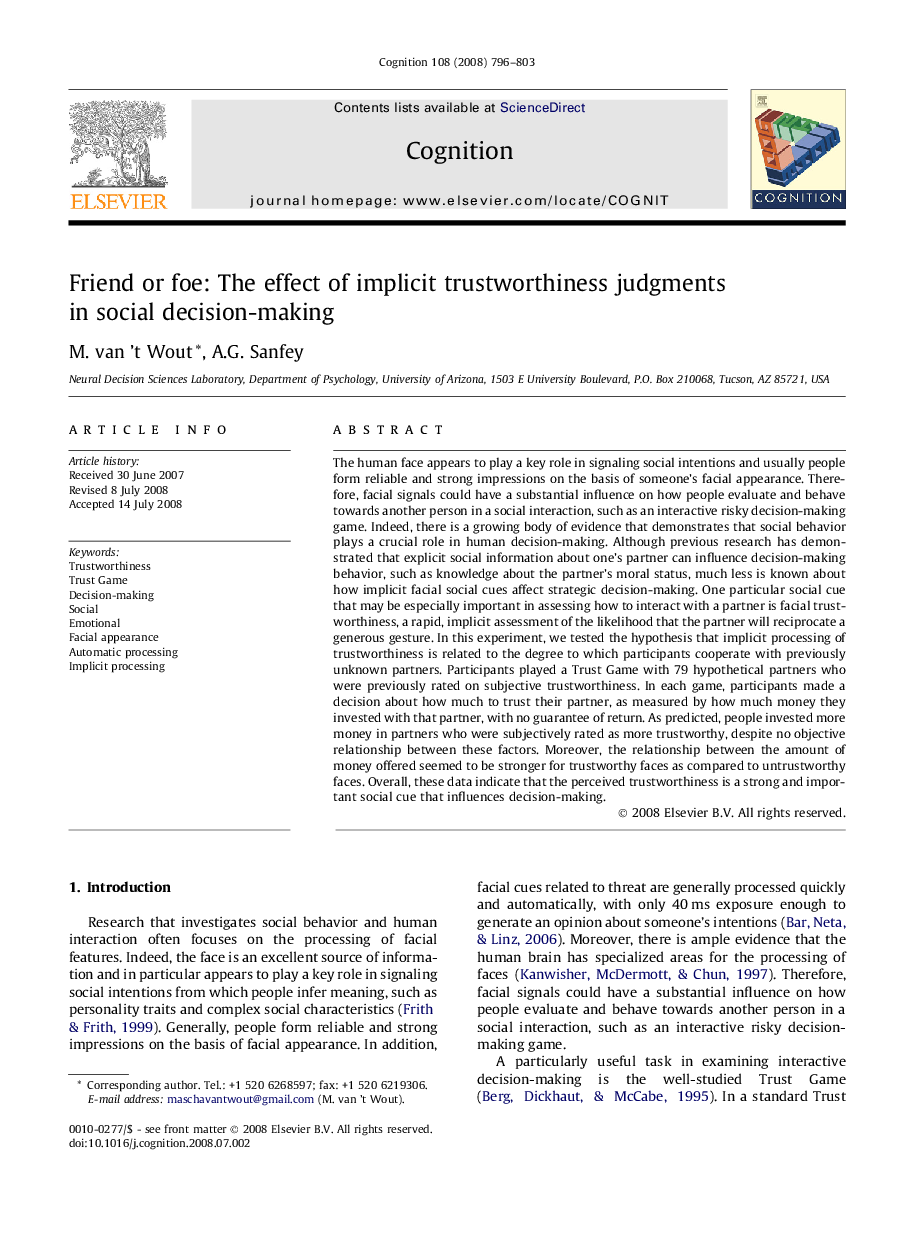| Article ID | Journal | Published Year | Pages | File Type |
|---|---|---|---|---|
| 927318 | Cognition | 2008 | 8 Pages |
The human face appears to play a key role in signaling social intentions and usually people form reliable and strong impressions on the basis of someone’s facial appearance. Therefore, facial signals could have a substantial influence on how people evaluate and behave towards another person in a social interaction, such as an interactive risky decision-making game. Indeed, there is a growing body of evidence that demonstrates that social behavior plays a crucial role in human decision-making. Although previous research has demonstrated that explicit social information about one’s partner can influence decision-making behavior, such as knowledge about the partner’s moral status, much less is known about how implicit facial social cues affect strategic decision-making. One particular social cue that may be especially important in assessing how to interact with a partner is facial trustworthiness, a rapid, implicit assessment of the likelihood that the partner will reciprocate a generous gesture. In this experiment, we tested the hypothesis that implicit processing of trustworthiness is related to the degree to which participants cooperate with previously unknown partners. Participants played a Trust Game with 79 hypothetical partners who were previously rated on subjective trustworthiness. In each game, participants made a decision about how much to trust their partner, as measured by how much money they invested with that partner, with no guarantee of return. As predicted, people invested more money in partners who were subjectively rated as more trustworthy, despite no objective relationship between these factors. Moreover, the relationship between the amount of money offered seemed to be stronger for trustworthy faces as compared to untrustworthy faces. Overall, these data indicate that the perceived trustworthiness is a strong and important social cue that influences decision-making.
